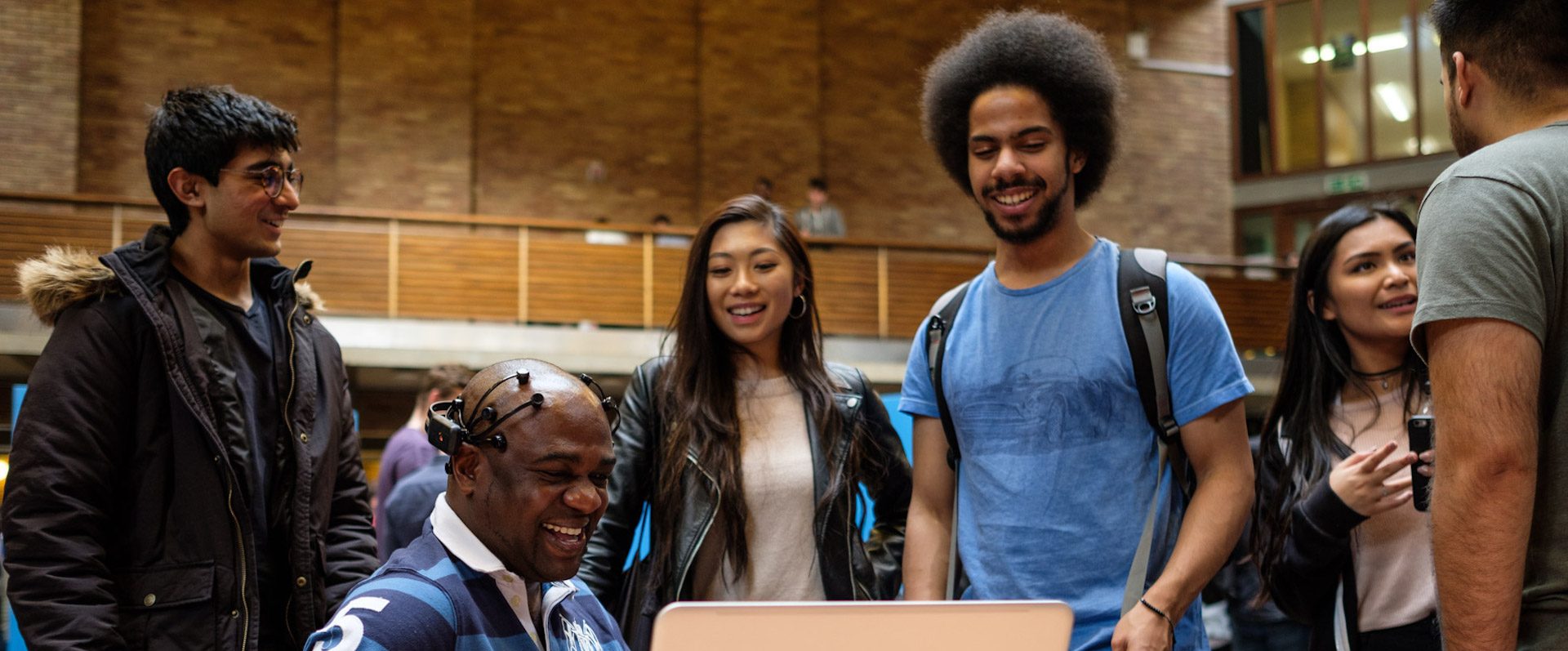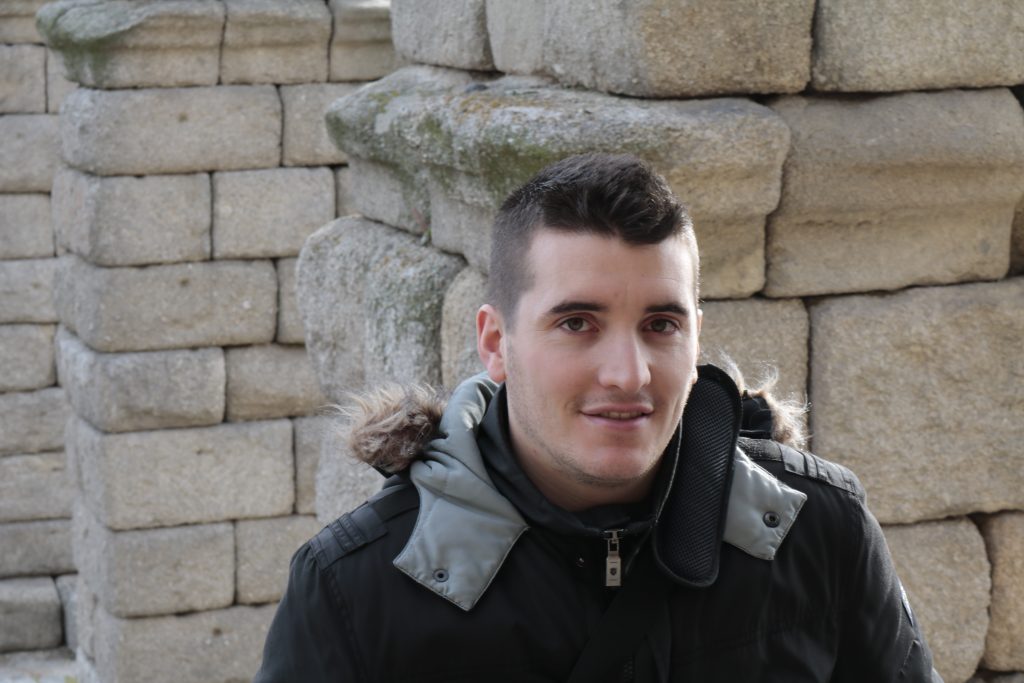Pedro discusses what attracted him to the MSc Computer Science conversion course and how it laid the foundations for his chosen career path.
Why did you choose Kent?
I chose Kent because it offered high flexibility to tailor courses based on your needs. For example, you could take part in many different societies, you could also take other optional modules not directly related to your chosen subject area and so on. The possibilities were endless. It was also a very high ranked University when I applied. This, together with the fact Kent has a lovely green countryside, and relaxing places to unwind was a very decisive factor for me to come to Kent.
What attracted you to the course?
What attracted me most was the range of subjects with mixture of theory and practise in the courses. What I also liked about the course was the price – it was cheaper compared to other high ranked universities. In addition, it was the fact of having the opportunity to study a master course in a subject that I had no knowledge whatsoever. Although this might sound scary at first, it was a great fruitful challenge.
What was your degree course like? And what about the lecturers?
The degree course was very tough, especially when you do not have any previous background on the subject. There was a mixture of theory from lectures combined with practical exercises during seminars; which I found very entertaining and useful, especially for modules like Systems Architecture or Logic and Logic Programming. The lecturers were strict, but knowledgeable in the subjects so I got an excellent chance to learn so much.
Did you do a year in industry? If so where and how useful was it in getting a graduate job?
Yes, I did a year in industry for Influential Software based in Maidstone. It was extremely useful in getting a new graduate job, because you get exposure and experience with new technologies and apply what you learn at University in real-life projects. I think this really makes a difference because the competition is high, and companies will look for CV’s that really stand out from the crowd. For me, having done my placement I believe was a decisive factor in getting my current role as graduate consultant.
How did postgraduate study (if applicable) differ to that of undergraduate?
The main difference for me was the maturity of students and level of difficulty. At postgraduate level you get to study alongside peers that are very serious about what they want to do, focusing a lot on their studies and career aspirations; inspiring you to give your best and facilitating the achievement of excellent grades and results. Level of difficulty in my case was much higher for postgraduate than in my undergraduate studies because I joined without any knowledge, but it may vary from one course to another.
How did your degree course lay the foundations for your chosen career path?
My degree course opened up endless possibilities for my career path. First, because technology is changing dramatically and is shaping every sector. The course gave me the opportunity to learn across many programming languages, technological tools and practices applied from different angles, at the engineering, architectural and data analysis levels. As a result, I did not only learn the technical aspects of the tools and languages being used, but also how important they are and how they fit into the bigger picture in today’s business and societal world. It gave me the technical and business foundations to kick start my career in consultancy.
Could you describe your career path since leaving Kent?
After completing my studies, I undertook a year in Industry doing web applications development. After that, I joined a consultancy firm; which focuses on embarking retail clients on a digital transformation journey, reinforcing and suggesting agile practices and reshaping their technology architecture. Although those are the different 3 areas the company specialises in, I have been focusing on the technology architecture domain.
Could you describe a typical day in your current role?
There are no two similar days in my current role. But generally, when on a client project, a typical day is composed of early stand-up meetings, where each member of the team will explain what has been done, what is the progress and any blockers encountered. However, those meetings could vary from one client to another, since sometimes those meetings are only held once per week. After the meetings, I read documentation to understand what has been done on the project and provide and design technological solutions. This, therefore, also involves meetings with stakeholders at various levels, to coordinate activities with them, give them an update on what other teams have done and provide courses of action. When the project contract terminates, or there is no availability of projects, I work on internal tasks for the company to maximise internal know-how and providing presentations to internal stakeholders.
What are your future plans/aspirations?
My major aspiration is to enjoy what I do. The technology field is very vast and there are so many things I want to get my hands into, including but not limited to, artificial intelligence, data analysis or even cloud infrastructure and automation. Regardless of the domains or areas, I enjoy dynamic work in which 2 days are not the same, learning new things every day, and that is exactly what I have now. However, I need to see I am continually learning to keep some of those aspirations high, not only to help businesses and the world where we live, but also for fun, such as learning new foreign languages – I am trying to learn Italian now. Also, I do not reject the possibility of launching my own business.
What was the best thing about studying at Kent
I cannot highlight only one thing, there have been many great things for me about studying at Kent. The university campus as a whole, driven by a fantastic and open-minded community of lecturers and students, as well as many other people giving support like careers and employability and placement office services. Everyone gives a lot of support to help students get the best of themselves and make the university journey more promising in terms of after Uni prospects. In addition, I love green countryside and hiking, and Kent is the best area I have lived in the UK for that. I cannot forget about all the squirrels, and rabbits that you can spot across the campus but also in Canterbury too. If only for that Canterbury and Kent Uni are definitely worth a revisit!
Finally, what advice would you give to someone thinking of coming to Kent?
My advice for those coming to Kent is to make the most of it. University of Kent provides so many support services as I gave reference to. There are so many opportunities open, but those are only for the ones who embrace them. Join as many societies as you can, go nights out with your classmates, try to take part in any other extra-curricular activities, like being a class representative/ambassador, try to get experience through placements and also apply early for graduate jobs. But above all, try to enjoy university and what the city and campus have to offer. Kent is a lovely, green and nature “squirrely” place that will make you feel at home, and relaxed. Chances of success will be much higher when you combine proactivity on studies, joyful times with friends and peaceful walks/exercise around Canterbury countryside! – I miss Canterbury so much!!

